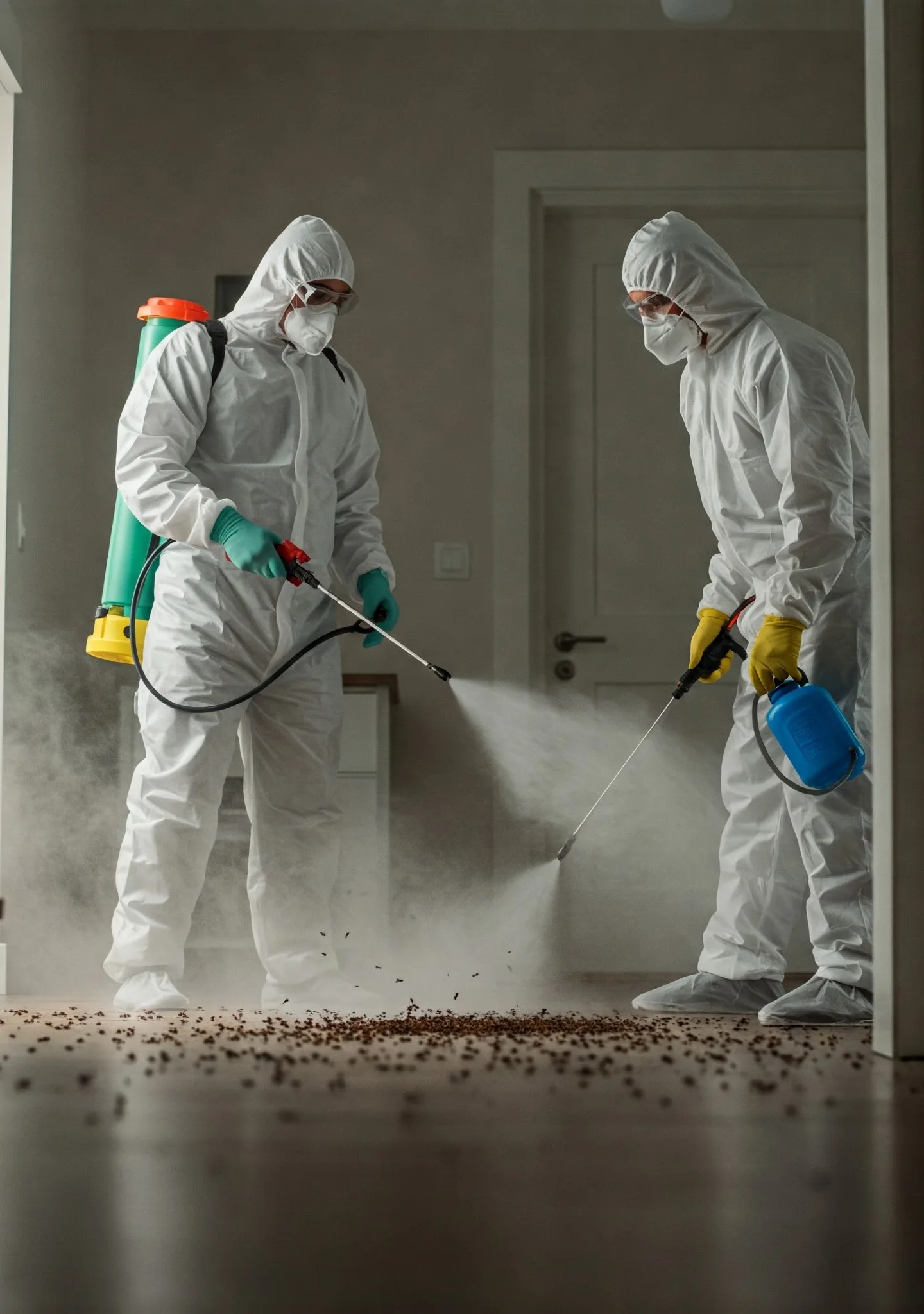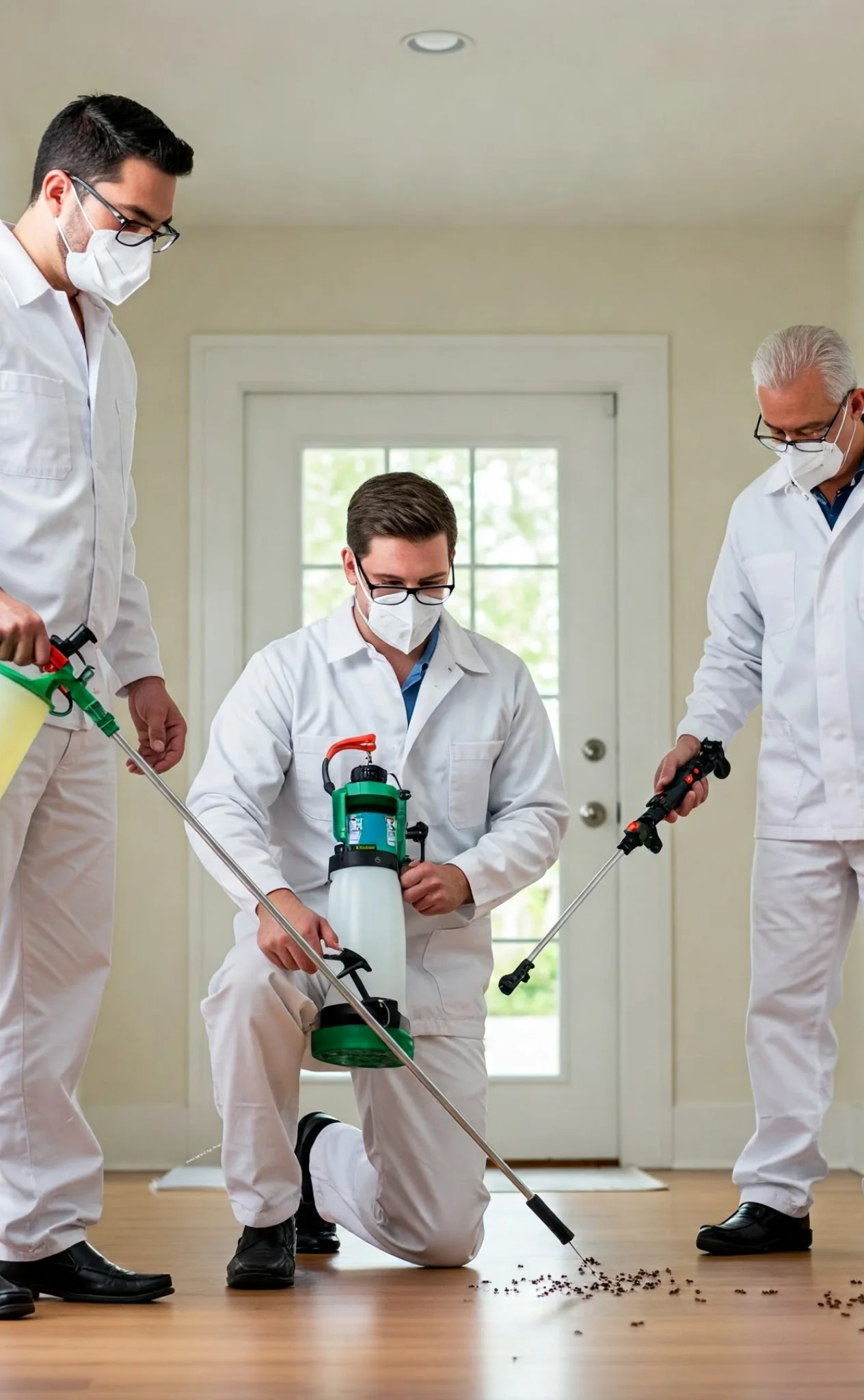Affordable & Effective Ant Exterminator – Regain Your Home
Our expert team uses advanced techniques and eco-friendly products to eliminate ant infestations, ensuring your home stays clean, safe, and comfortable. Whether you’re searching for “ant control near me” or need comprehensive ant pest control, we’re dedicated to solving your ant problems efficiently.
Get a free estimate
Fast, Reliable, and Eco-Friendly Pest Solutions Tailored to Your Needs



Identify and Eliminate Ant Infestations Quickly
Thorough Inspection and Detection Process
Ants are experts at sneaking into your home through the tiniest cracks, making it difficult to pinpoint where an infestation begins. A successful ant extermination process starts with a comprehensive inspection. Our experienced technicians know that early detection is key to effective ant pest control. We begin by carefully examining areas such as kitchens, pantries, and entryways to locate ant trails, nests, and food sources that attract these pests.
During our detailed inspection, we use a combination of visual assessments and modern technology to detect even the smallest signs of ant activity.
We look for:
Ant trails leading from entry points to food sources.
Hidden nests in wall voids, under appliances, or in cluttered areas.
Crumbs and residues that can serve as a food magnet.
Moist areas that create favorable conditions for ant breeding.
This methodical approach allows us to assess the extent of the infestation accurately.
Once the inspection is complete, our team provides you with a clear and concise report, detailing any areas of concern along with recommendations for immediate treatment and long-term prevention. Our goal is to ensure that you understand exactly where the problem lies and what steps are needed to eliminate it.
Early detection is crucial, as it not only prevents extensive damage but also reduces the need for more aggressive treatments later on. With our professional ant pest control services, you can be confident that no corner of your home will be overlooked. This thorough process sets the foundation for a targeted treatment plan that eradicates ants quickly and efficiently.
Customized Ant Extermination Solutions That Work
Tailored Treatment Plans for Lasting Results
Every ant infestation is unique, which is why a one-size-fits-all approach rarely works. At Bugz Bug Me, we create customized treatment plans that address your home’s specific ant problems. As a trusted ant exterminator, our experts analyze the results of the inspection and design a strategy that not only eliminates the current infestation but also prevents future outbreaks.
Our treatment solutions are built around a few core principles:
Targeted Liquid Applications:
We use professional-grade liquid insecticides applied along the ant trails, entry points, and nest areas. This approach forms a protective barrier that kills ants on contact and stops new ones from entering your home.
Baiting Systems:
In many cases, we install bait stations that attract foraging ants. The bait is then carried back to the colony, disrupting the food chain and eventually leading to the collapse of the entire ant colony. This method is especially effective for hard-to-reach nests and offers long-lasting results.
Spot Treatments:
For localized infestations, we provide spot treatments that focus on problem areas without the need for a full-scale treatment. This ensures that we address the infestation directly while minimizing disruption to your daily life.
Eco-Friendly Options:
Our treatments are designed to be safe for your family and pets. We prioritize eco-friendly products that are powerful enough to eliminate ants while ensuring minimal impact on the environment.
Our technicians take the time to explain each step of the treatment process, ensuring that you understand what to expect. Clear communication is key to building trust and confidence in our services. With our customized ant extermination solutions, you not only get immediate relief from an active infestation, but you also gain a strategic plan for preventing future problems.


Long-Term Protection and Ongoing Support
Building a Lasting Shield Against Ants
Eliminating an ant infestation is only half the battle. To truly protect your home, you need a plan that stops ants from returning. At Bugz Bug Me, our commitment extends beyond immediate extermination to include ongoing maintenance and proactive prevention strategies. This comprehensive approach is designed to provide continuous protection, so you can enjoy a pest-free home all year round.
After the initial treatment, our work isn’t done. We schedule follow-up visits to monitor your property and ensure that no new ant activity has started. These routine inspections are crucial, as they help us catch any early signs of a potential re-infestation before it becomes a major problem. During these visits, our technicians re-assess previously treated areas and make any necessary adjustments to your protective barriers.
In addition to our inspection services, we provide valuable advice on how to maintain an ant-free environment. Some of our key preventive recommendations include:
Keep food sealed and stored properly:
Use airtight containers and clean up spills immediately to reduce the attraction for ants.
Regular cleaning and maintenance:
Consistent cleaning, especially in the kitchen and dining areas, helps remove food residues that can attract ants.
Seal potential entry points:
Repair cracks and gaps around windows, doors, and the foundation to block ant access.
Manage moisture levels:
Fix leaky pipes and maintain proper ventilation to reduce damp conditions that favor ant activity.
